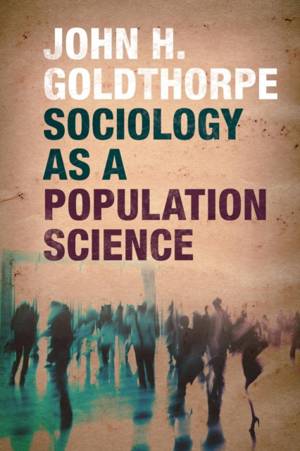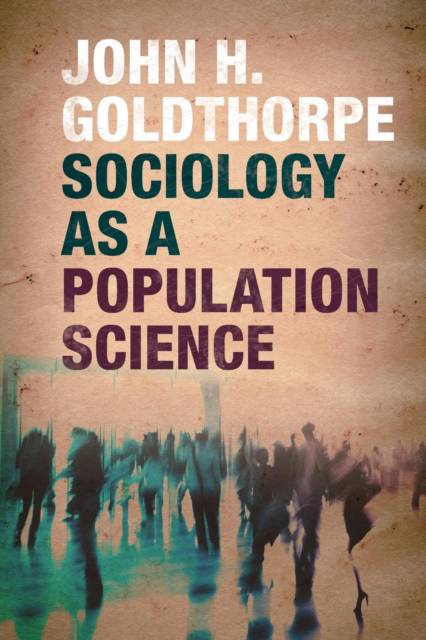
- Afhalen na 1 uur in een winkel met voorraad
- Gratis thuislevering in België vanaf € 30
- Ruim aanbod met 7 miljoen producten
- Afhalen na 1 uur in een winkel met voorraad
- Gratis thuislevering in België vanaf € 30
- Ruim aanbod met 7 miljoen producten
Zoeken
€ 37,45
+ 74 punten
Uitvoering
Omschrijving
John Goldthorpe is one of Britain's most eminent sociologists and a strong advocate of quantitative sociology. In this concise and accessible book, he provides a new rationale for recent developments in sociology which focus on establishing and explaining probabilistic regularities in human populations. Through these developments, Goldthorpe shows how sociology has become more securely placed within the 'probabilistic revolution' that has occurred over the last century in the natural and social sciences alike. The central arguments of the book are illustrated with examples from different areas of sociology, ranging from social stratification and the sociology of the family to the sociology of revolutions. He concludes by considering the implications of these arguments for the proper boundaries of sociology, for its relations with other disciplines, and for its public role.
Specificaties
Betrokkenen
- Auteur(s):
- Uitgeverij:
Inhoud
- Aantal bladzijden:
- 175
- Taal:
- Engels
Eigenschappen
- Productcode (EAN):
- 9781107567313
- Verschijningsdatum:
- 1/12/2015
- Uitvoering:
- Paperback
- Formaat:
- Trade paperback (VS)
- Afmetingen:
- 153 mm x 231 mm
- Gewicht:
- 263 g

Alleen bij Standaard Boekhandel
+ 74 punten op je klantenkaart van Standaard Boekhandel
Beoordelingen
We publiceren alleen reviews die voldoen aan de voorwaarden voor reviews. Bekijk onze voorwaarden voor reviews.











